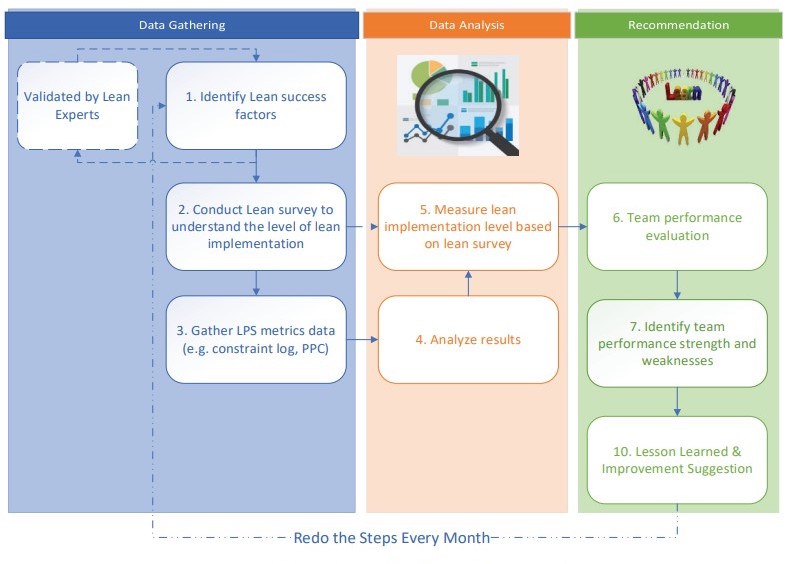That's the question explored in a paper presented at IGLC 31 (doi.org/10.24928/2023/0163), introducing the Lean Health Check Framework—a practical tool designed to assess the maturity of lean behaviors and culture on construction teams.
Why Culture Matters in Lean
Lean isn't just a set of processes, it's a mindset. It's about how teams communicate, collaborate, and solve problems. Yet, many organizations invest heavily in lean tools without ever asking: Is our culture actually supporting lean?
The Lean Health Check Framework fills that gap. It helps teams reflect on their behavioral maturity and links those insights to real project performance metrics like Percent Plan Complete (PPC).
What the Framework Does
The framework is built around three core functions:
- Identifying Lean Success Factors Through literature review and expert consultation, the framework defines key cultural traits that drive success—such as openness, trust, and proactive communication.
- Testing in the Real World Developed using a Design Science Research (DSR) approach, the framework was refined through expert feedback and applied to a real construction project.
- Linking Culture to Performance By analyzing PPC and constraint log data, the study found that teams with stronger communication and trust had higher PPC scores—suggesting a clear link between culture and delivery performance.
How It Works
The Lean Health Check is designed to be simple and actionable:
- Self-assessment surveys and facilitated interviews help teams reflect on how they interact, handle change, and surface issues.
- Tailored scoring highlights both strengths (like transparent decision-making) and areas for improvement (like reluctance to raise constraints).
- Performance linkage connects cultural maturity to hard data, giving teams a clear picture of what's working—and what's not.

Why This Matters for Your Projects
- Culture amplifies process: Even the best lean tools won't work if your team isn't aligned in mindset and behavior.
- Visibility drives change: Measuring cultural maturity sparks conversations and opens the door to improvement.
- Data supports growth: With baseline scores and PPC tracking, you can monitor progress and set meaningful targets.
Getting Started: 4 Quick Wins
- Run a baseline assessment early in your project to understand your team's current lean maturity.
- Share the results in a team session to build transparency and trust.
- Target one or two weak spots—like "we don't raise constraints early"—and build improvement cycles around them.
- Track PPC alongside behavior to see how cultural changes impact delivery.
Final Thoughts
For full details, including methods, assessment tools, and case study insights, check out the original paper:
Read the Full Paper Parastoo Eivazi Ziaei
Parastoo Eivazi Ziaei

